Once a manager trainer from the outskirts of Atlanta Georgia, Julian Winters (He/Him) is now an acclaimed author of queer YA fiction, including his debut book involving soccer and boys crushing on other boys, Running with Schools. A lovely writer, with a heart of gold and wonderful sense of humor, Julian Winters strives to write intersectional queer literature, focusing on LGBTQ+ characters with multifaceted identities. Now coming out with his latest book, How to Be Remy Cameron, Geeks OUT had the privilege and opportunity to sit down with Winters for an interview.
When and how did you first realize you wanted to become an author?
I first realized I wanted to be an author, not just a writer, probably…it was later on in life. I didn’t think I could do it. I didn’t think there was any actual space for me in the author community being black and being queer and writing the stories I wanted to write. It was later on when I started writing fanfiction and people actually started saying “Oh, my gosh. This is really good. You have really great stuff.” And I was like, “oh wow, this is not just me sitting at a computer for hours, dreaming stuff up,” this is like a real thing. And so that’s when I realized I could maybe do this, but it took a lot of pushing from like friends because otherwise I was just content doing fanfiction and that would have been the end of it.
It’s funny about that. I actually wrote an article about how fanfiction is so important to the queer community because we kind of like get to deconstruct and reconstruct like something that’s in the cannon, and tailor it to our audience.
Exactly! That is exactly what it is, because these are things that are already deemed what’s acceptable, the cannon that’s already created for these characters and what not. And so, us being able to take something that’s considered “acceptable” and actually making it out own, and making it about us, makes us in a way feel accepted. But I think it’s such a great leap. I encourage people all the time, if you’re nervous about writing, nervous about the things that you write, write fanfiction. Because you’ll find not only an opportunity to kind of build off the stuff that’s already there, but you also find this great supportive community. Like the fandom community is amazing. Amazing.
It can have its trolls.
Yeah. Like with any great thing in life it has its downfalls, but I still have so many friends from fandom who read my books, and it’s awesome.
Awesome. I personally think there are some fan-fiction writers who write better than actual published authors.
This… listen, I don’t want to get into trouble,
(Laughs)
but there are many a fanfiction writers that I have encouraged to take it to another level where they can actually profit off of what they do. They are some tremendous writers, but they’re also very comfortable in that sense of community, and sometimes it’s very hard to step of it. Like it was very nerve-wrecking for me to step out of this community that had already built around me, and step into a whole other world where people did not know me, and you kind of have to…it’s that whole starting over, like high school or any kind of thing where you’re moving from a place you’ve always called home. It’s always that starting over things that’s like, “oh, wow. Let me just stay where I’m like comfortable.”
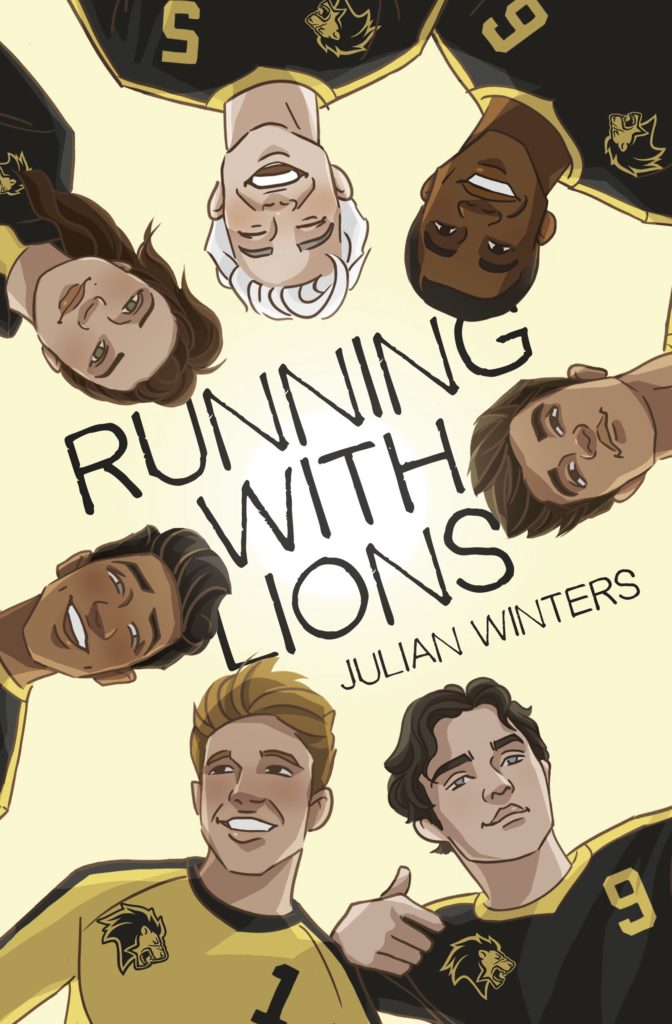
Are there any LGBTQ+ authors or themed books that have inspired you or your own work?
Yes, I will say there are definitely ones that inspire me. Aristotle and Dante Discover the Secrets of the Universe. That book is life-changing in so many ways and I turn to it all the time. When I’m in a reading slump I go to it. When I need some kind of creative energy I go to it because I think it’s just so masterfully done in the way that he makes everything so simplistic, but it’s so deep and there’s so much emotion behind it, and I absolutely love it. So I definitely turn to that one for inspiration. Anything Becky Albertalli writes, I swear… I just feel like she understands my inner-geek. She understands my inner-romantic. She understands who I am… I don’t know, so I enjoy everything, and at the end of the day I just feel good reading her books. So stuff by her. One of my biggest inspirations right now is Darius the Great is Not Okay by Adib Khorram. Oh, I will never stop talking about that book. It is simply amazing in all the different layers and things that it tackles without feeling like it’s an overwhelmingly messaged book.
It’s not didactic.
It’s not at all. It’s just so good and so human and at times so soft, but at times so complicated, which I love because it shows that you can be both, you don’t have to be one or the other. So these are my big ones right now.
If the characters of your book, Running with Lions, could interact with characters from any other fictional universe, which characters would they be and where would they be from?
Oh gosh. They would interact with the kids from Shady Creek in Simon vs. the Homo Sapiens Agenda. Only because I think the team would get along with their soccer team, obviously. I don’t know if they would be rivals or if they would just be friends and what not, but I love Bram, so I would love for any chance for Sebastian or Amir to interact with him. I love Garrett, too. He’s just like the biggest dude-bro, but also like deep too. And so I love that. He’s comes across as like this guy who you’re like “you’re just a stereotypical jock” kind of thing, but you find out like Leah in Leah on the Offbeat that he’s actually a lot deeper than that. He’s actually a really cool person. So I definitely like them to interact with them.
Which characters from your Remy Cameron book? Who would they interact with?
Oh gosh. Who would Remy interact with? This is a great question because I have to think about it. If anything, I think Remy would interact with… you know there’s a book called Boy Meets Boy by David Levithan. I think Remy would interact well with that universe in the sense that book is so much about music and friendship and you know, kind of defying the odds, and also kind of like defying labels put on all those characters. Because it is the best book when you want a book that defies every label possible when it comes to you know what a jock is, or what popular is, or relationships and stuff like that. So I think Remy would definitely interact very well with that.
I’d also love to see Remy interact with Starr from The Hate U Give because I love Starr period and I think Remy enjoy being around her because they both share the same kind of sentiment where they’re in-between worlds in the sense that, you know, Starr goes to this posh private school.
A very white, posh private school.
Yes, a very white, posh private school. But she also has this home life that is completely different from that. And Remy is in, at that point, where he recognizes that he goes to this school where he’s one of five black kids in the entire school, and so at times he’s at odds with, “Oh ok, I love the same things that some of them do, but they also don’t share a lot of the background or challenges that I have to go through.” And so I’d just love for him to be around her, because she was just so inspirational. Even through everything she had to go through through that book, she was still just so inspirational in the sense that she was Starr the whole way through. It’s just a great evolution.
Got it. I actually was asking this question because I noticed you’re a fan of Quinn Dreaming by TJ Ryan.
Oh gosh! That’s a great one. I didn’t think of that one.
And I imagined them interacting with Sorrell and Quinn.
I think, and I know TJ Ryan very well, they’re awesome.
They did fan art of Running with Lions.
Yes, they did fan art of Running with Lions. I love TJ. And I didn’t think of that. I think that Amir and Sebastian should definitely hang out with Quinn and Sorrell. It would be fantastic.
Just sports fans. Fellow bisexuals.
Yeah. Fellow sports fans. Fellow bisexuals. Fellow great time people. Like they just generally have a great time. So I can’t believe I forgot about that. But read Quinn Dreaming the web-comic, it’s awesome.
Recently, many prominent athletes have come out and are playing openly in interactional competitions, such as Gus Kentworthy and Adam Rippon at the Korean Winter Olympics. Do you believe this increased level of visibility has begun to affect everyday lives of other LGBTQ+ youth and athletes?
Yes. I am so grateful for them. I’m grateful for the people who have come out in soccer, people who have come out in rugby recently. I believe there have been some swimming or diving people who have come out also. I think what they’re doing is beyond brave because the sports world has never really been accepting of any kind of LGBTQ person.
Or plus anyone who’s like non-white or able-bodied.
Exactly. Exactly, and I think there’s a lot of barriers to break through there. But I think what they’re doing is awesome. There is a blog that I follow happily called Outsports that has actual high school or college athletes who get to tell their own coming out story, written by them. And it’s so inspiring to see how many times they quote these athletes, and say you know they helped me to be able to say to my teammates, “Hey, this is who I am. I hope that you still accept me.” And the stories are just so joyful because the teammates are accepting, the coaches are accepting, the community, the parents, the family. It’s awesome how much they stand behind these athletes because they recognize you’re still gifted at the sport you’re playing, and that’s the part that should be the deciding factor of whether whether or not you’re on a team or that you’re competing. It should have nothing to do with your sexuality. It should have nothing to do with your gender. And so seeing that is just so gratifying. But knowing that these prominent, popular athletes are out there competing and still saying, “Hey, this is who I am,” it’s amazing to me.
Yeah, I think so, too.
In previous interviews you had mentioned that you integrated personal details/ elements from your own life and personality into your protagonist, Sebastian. Can you expand on this?
Yes. Um, wow. This is a fun question. It’s always fun when you get to go deep into your own self. So for Sebastian, I struggled severely in high school with what I was going to do after high school. Because I was so content with my friends and club organizations that I was a part of, and that’s where I was happiest, and I didn’t know what I was going to do after high school.
Same.
In fact, I actually picked my college based on what my best friend chose. And biggest mistake in the world because that college was great for her. It was not great for me. But that’s just the element that I was in, and that’s definitely what Sebastian goes through in the book is facing that challenge of who are you outside of your friends, outside of your comfort zones, and things like that. Another thing I wrote that was very personal was Sebastian’s body issues. You know, while everyone else is around like saying, “Oh, you’re perfect. You’re healthy. You’re in shape,” and this and that, he was not comfortable throughout the book with who he was physically. And that’s something I struggle with even now is who I think I am in other people’s eyes physically and who I see in the mirror kind of thing. And so writing that was challenging, but I think it was so important because it’s not often depicted that males have issues with their body and representation like that and I needed to have that in there. And I needed to show it’s ok to say to someone, “Hey, I have this issue,” and get healthy outlets to kind of help you work through that. And so, those were the two major things I wrote about there about Sebastian that was very personal, very much me in Sebastian.
Yeah, and you included a lot of personal stuff with Remy, too.
Oh right, well Remy is super personal, and when I have to start really talking about that I think I’m really going to have to work my way through my way of how I’m going to talk about that. But a lot of Remy’s things is issues with identity. He goes through issues with whether he’s feels black enough, he goes through issues with whether he’s too gay. A lot of these issues that I think aren’t discussed that we face throughout the world, being a person of color, or being somebody whose sexual identity is other than straight, being, you know, who we present ourselves to others, it’s a lot and I wrote it all throughout Remy. Like through the whole book. But with Sebastian, it was a bit easier because there were certain sections that I tackled these things, but with Remy it’s like throughout the book that I’m just exposing parts of myself to show people that this is just not like an isolated incident, and that you’re not alone in this, and you know there’s a place where you kind of can let these things out.
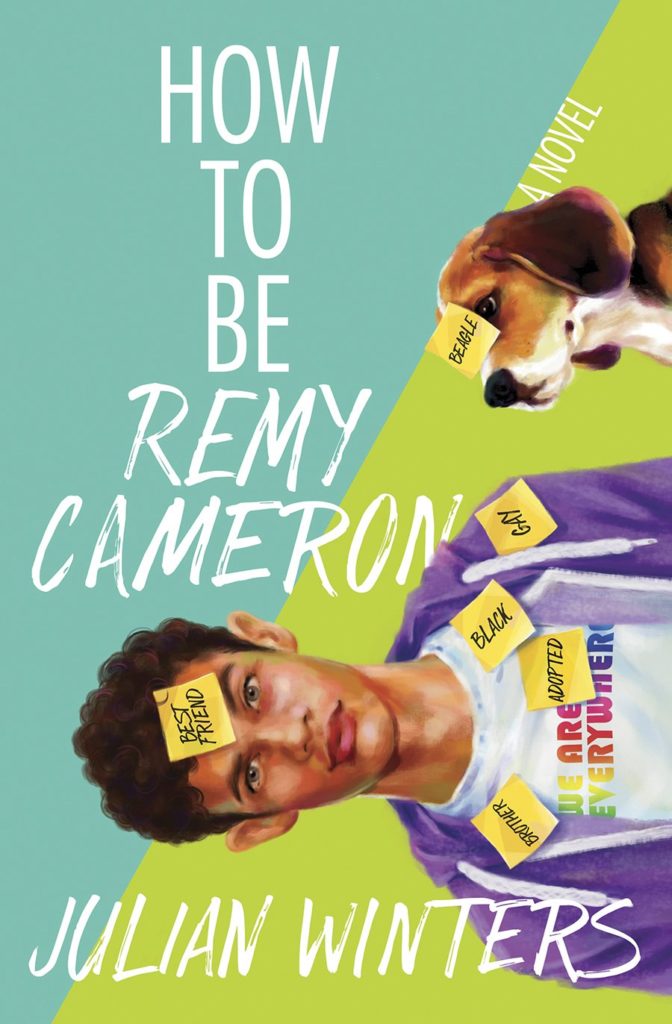
Prominent queer and African-American poet, Audre Lorde wrote, “There is no such thing as a single-issue struggle because we do not live single-issue lives.” Within your book many characters have intersectional identities, which include issues related to mental health, religious identity, race/ethnicity, queerness, and more. How did you handle capturing the intersectionality among your characters? Do you have any advice for other writers specifically on how to handle this topic?
I think one of the things you have to draw from is the world that you live in, and fortunately for me I live in a world where I’m friends with or I associate with people who have so many different intersectional identities, so I’m able to kind of pull from that and show a space that it exists, it happens. I myself have intersectional identities, so it is in a way easy for me to be able to say “Ok, I can write this because I live it” kind of thing. It’s always based on my own experience kind of thing.
But I also suggest if you want to write these things and you’re not from that identity, you’re not from that world: one, research, obviously, but there’s only so much Google’s going to tell you, ok. Get to know people, talk to people. For Remy, I actually sat down and interviewed friends, and said, “talk to me about the things that you face. Talk to me about the joys that you have, you know, with your intersectionalized identities, but also talk to me about the struggles that you have.” I seek out sensitivity readers all the time because it’s like, yeah I want to write about these things. I want to expose it. I want people to see and live these joys, and also see the problems that they face. But I also want to get accurate. I want it to be honest. I want it to be authentic, so I always suggest you get sensitivity readers, even if it’s something you’re just the least bit unsure of. Ask a friend from that identity and say, “hey can you just read this over for me and let me know does this sound ok, does it sound stereotypical, does it sound like it’s contrived, things like that I always suggest. But yeah, just get to know people. Like this world is brimming with fantastic, amazing people. Just talk to them, and don’t talk to them in a way that’s just like, I want to know about this part of you, where are you from, what language do you speak, things like that, or what are the struggles you face.
Just get to know them as people vs. identity.
Exactly. And then you’ll kind of see the parts of their humanity that are so much like you, but the parts that aren’t, that maybe you didn’t think of, “oh wow, I didn’t realize this person might face this,” as you know, this part of their identity that I don’t actually face and I’m thinking “well no one else faces,” because we all sometimes live in our own heads that these are our own struggles and no one else faces them. Or these are own own struggles and everyone faces them. So I definitely suggest like those things: research, sensitivity reader, get to know people.
Do you have any upcoming projects you’d also like to share with us?
Oh gosh, I love this question. Ok, so I am a part of an anthology that comes out next year. There was an anthology that came out two years ago called All Out: The No-Longer-Secret Stories of Queer Teens Throughout the Ages by Saundra Mitchell, and the next edition of the anthology is called All Out Now: Queer We Go Again, which I love, and it’s a group of contemporary stories, and so I have a short story in there that I’m super excited about because it was so much fun to write about a father-son relationship and the ways… because oftentimes in the queer community it’s either one way or the other with the parents. It’s either they’re supper accepting or they’re super not accepting. And it was fun to kind of write about how the layers of sometimes a parent-child relationship, it’s a bit different, you know, in the ways that each of them deal with the coming-out process. So I’m super excited about that one.
I can’t wait to read it.
And then I’m working on another book… when I say working I mean thinking a lot about it. (Laughs) It is going to be a book about teens trying to go to a comic con convention, but of course, you know conventions are not cheap, and so they kind of have to find a way to go to the convention without actually having passes to get in. Super queer. It’s going to be very comic book geeky, which that’s me whole-heartedly, so I’m going to explore that, and I’m also going to explore the lack of representation that we have throughout, you know, graphic novels, comic books, and what not when it comes to queer representation. Which is super like good for me to talk about because for so long I just accepted, you know, “ok, well these are just comic books, these are just superheroes, these are just villains, and that’s how it needs to be,” and whatever, but I’m happy to talk about that. And then with any book of mine it’s going to be a quirky little rom-com on the side, which I hope has a plot twist that people aren’t expecting, but the way I’m writing I’m sure they’re going to figure it out pretty soon, pretty early in the book.
No, it’s great. It actually sounds like Queens of Geek.
Listen, let me quick shout out to Queens of Geek by Jen Wilde. Let me shout out Geekerella by Ashley Poston. Let me also shout out Death Prefers Blondes, which is a great heist book. Immoral Code is another great heist book and I drew from those books on kind of how to combine the elements of the geeky comic book kind of stuff and also the “let’s break into something we’re not supposed to be at” kind of thing.
I wholeheartedly love that.
Ad-lib
Which means that I can mess it up. (Laughs)
So ad-lib question number nine, since the premier of Love, Simon, there’s been more of a push for LGBT movies, especially towards teen-oriented movies, so which books, which YA books, would you love to see adapted into their own movie?
Oh, you would hit me with this one. Let’s see. Listen, to be honest with you and I know Becky has talked about it in a sense that it’s not in her control and she doesn’t necessarily know if she wants to have it, but I would love for Leah on the Offbeat to get made into a movie, because I love Leah and relate so deeply to Leah. I think it’s happening, but I don’t know if it’s got confirmation, but Aristotle and Dante Discover the Secrets of the Universe. Obviously I want that to become a movie. I think that would be such great representation. I think the story’s important. I think it would do such great things for teens. I would also love to see Darius the Great Is Not Okay get made into a movie because I love that book. There’s two others. One is Not Your Sidekick by C.B. Lee. We need to see a teen superhero movie with queer characters. And that book is so diverse in sexuality and gender, in identity. It’s perfect. And I’d also love to see a book called Noah Can’t Even by Simon James Green. I just need a rom-com where the main character is a compete klutz, gets it all wrong, misinterprets everything, and we can just laugh out loud because there’s so many great teen movies where you just laugh out loud, but none from a queer perspective.
Yes, I totally agree.
So I would kill for that to happen.
Ok great.

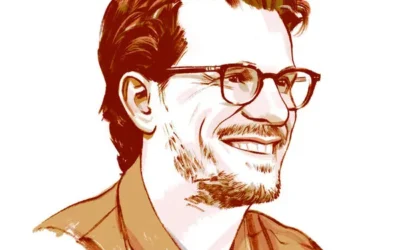
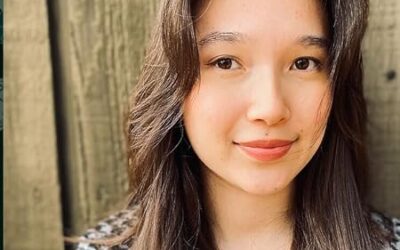
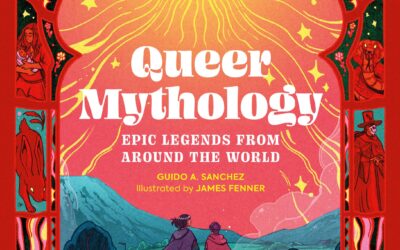
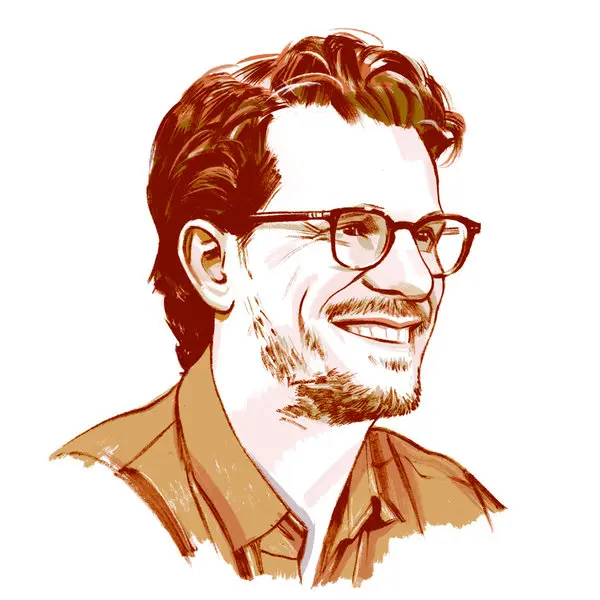
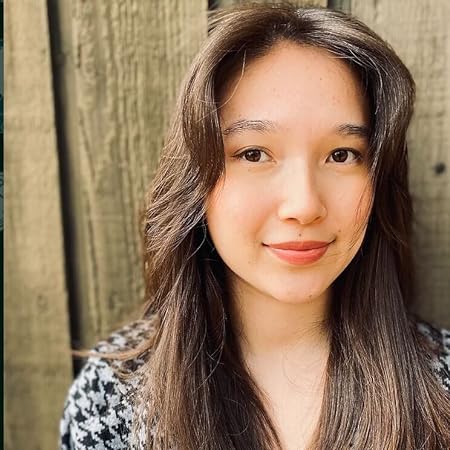
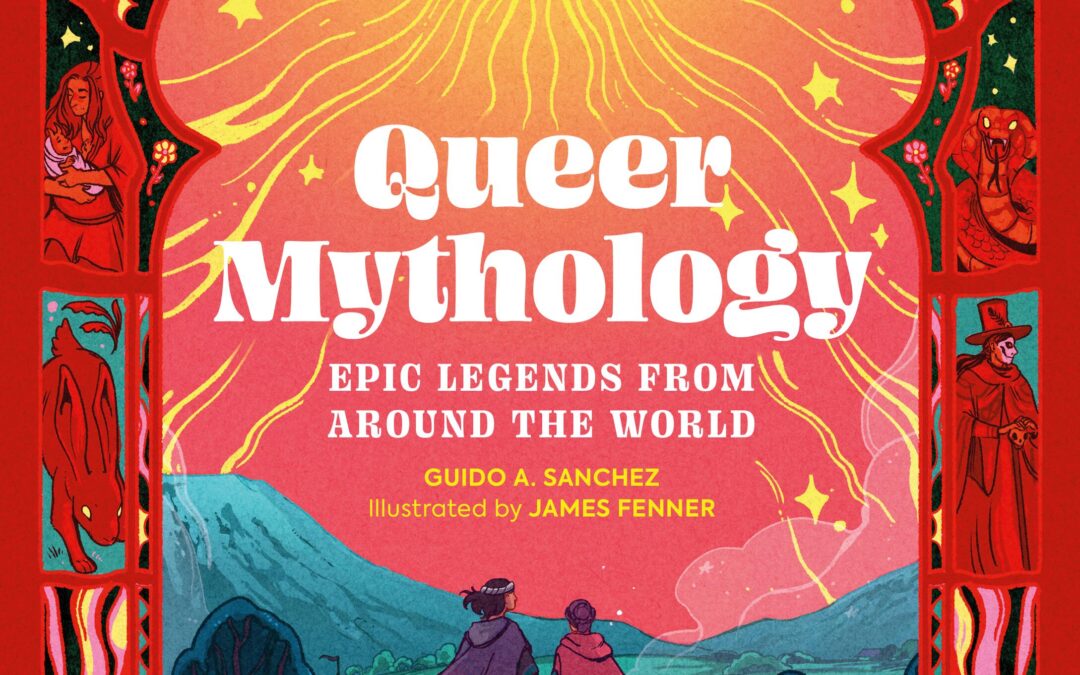
0 Comments